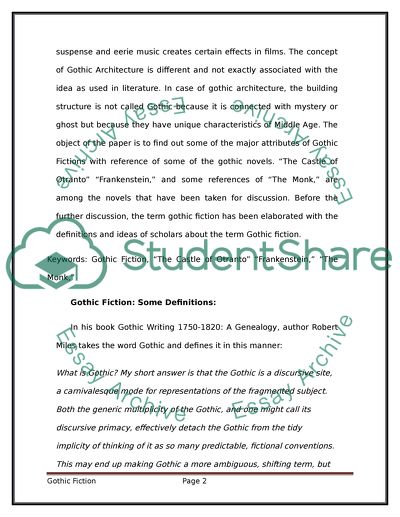Cite this document
(“Gothic fiction Essay Example | Topics and Well Written Essays - 3500 words”, n.d.)
Retrieved from https://studentshare.org/literature/1402674-gothic-fiction
Retrieved from https://studentshare.org/literature/1402674-gothic-fiction
(Gothic Fiction Essay Example | Topics and Well Written Essays - 3500 Words)
https://studentshare.org/literature/1402674-gothic-fiction.
https://studentshare.org/literature/1402674-gothic-fiction.
“Gothic Fiction Essay Example | Topics and Well Written Essays - 3500 Words”, n.d. https://studentshare.org/literature/1402674-gothic-fiction.


